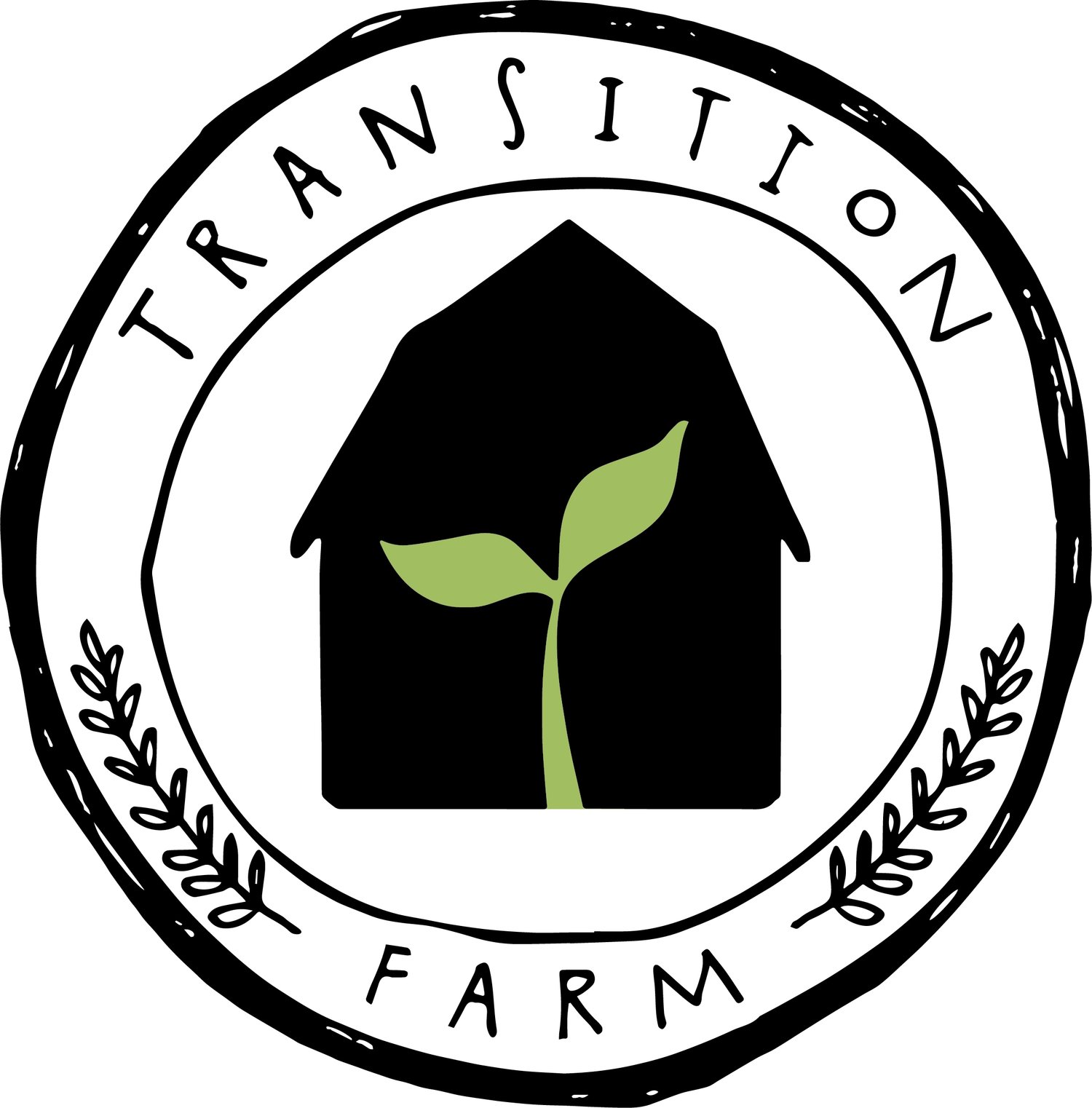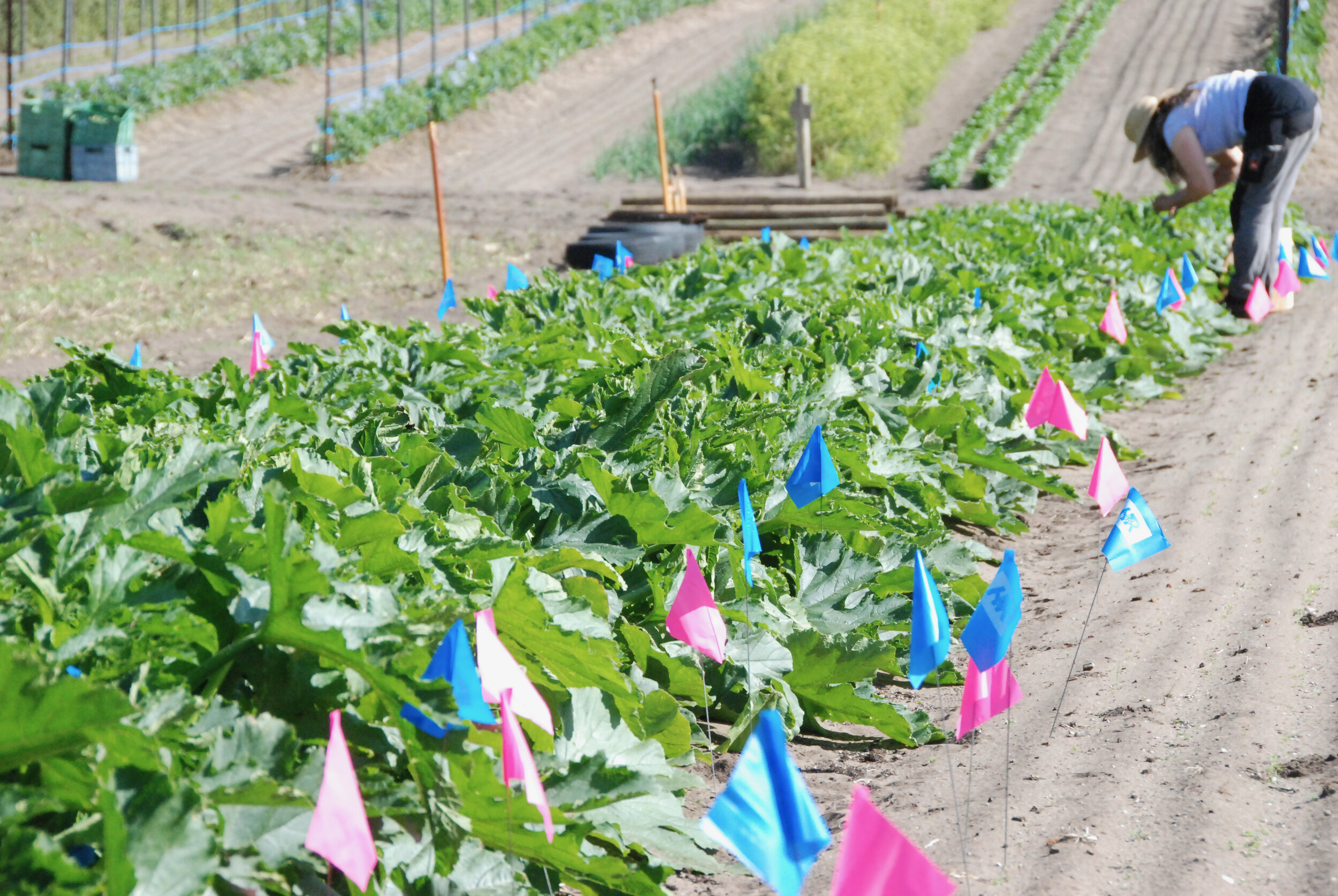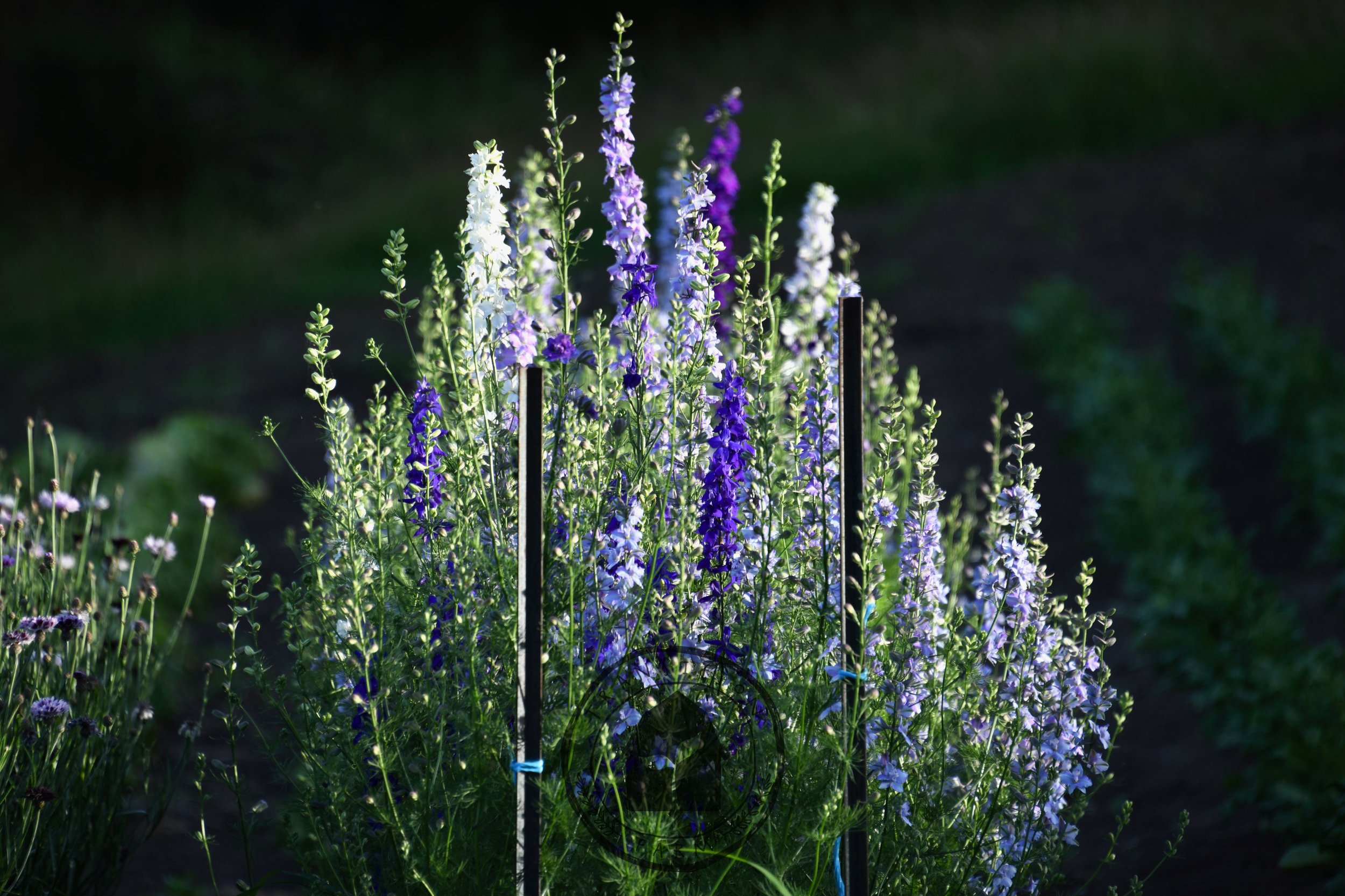Why We Are Growing Certified Bio-dynamic and Organic Seed
/Lettuce Seed Crop - Summer 2021
The agricultural journey Peter and I have been on began before either of us even perceived it, with us both appreciating and having access to good food and enjoying growing it. As I look over green manure crops shining in Winter, and consider what has brought us to this point, cleaning and packaging the last of over 80 vegetable, herb and flower seed crops grown this season and preparing to sell certified biodynamic and organic seed through our website, I have been reflecting on how food is and has been an essential focus of life.
CSA Weekly Vegetable Box photo representing several of the varieties in our collection
Of course food is essential but even 32 years after Wendell Berry highlighted that “Eating is an agricultural act” many people do not consider their connection to agriculture. We can trace our personal journey through family gatherings and food; early farming jobs; home gardens; first farms; focusing on family health; conventional farming, conventional grown food and food chain disillusionment; homesteading; building soil; building an ecosystem; building communities surrounding food systems; engaging with other like-minded farmers; perceiving a global food network and its reliance on…SEED!
Seed makes a difference - to the quality, flavour and nutrient density of the food we grow and eat. Seed makes a difference to a plant’s pest and disease resistance, to its resilience in extreme weather and its ability to form relationships, supporting the ecosystem and thriving from it.
The key to securing our wider communities food relies on seed - and we believe that that seed needs to be grown bio-dynamically/organically and regionally.
Biodynamic and organic growers of any size here in Australia need to have access to well-bred seed with more diversity not only in varieties but also in harvest windows.
These varieties need to have great flavour, be well maintained, need to be bred with a market grower's standard and need to thrive in an organic / biodynamic growing environment.
The seed needs to be adapted to our ever-changing temperatures and the intensity of light here in Australia - which can only happen if it is grown here in Australia.
Amethyst Basil Seed Crop - Summer 2021
In 2008 when we began Transition Farm, we wrote a mission statement, sustainability indicators and goals. These have proven invaluable in the many decisions we have made since then. Our sustainability indicators are:
Providing local food security
Conserving and improving the natural resource base
Being socially responsible
Throughout the past 13 years, we have allowed ourselves to be inspired as to what these indicators meant to Transition Farm and how we could continue to navigate our vision forward, adapting and changing as we grew with experience.
'Bronze Beauty' Calendula seed crop - Summer 2021
Since 2016, seed has been calling our attention with a voice that was becoming increasingly louder and louder. As our awareness of seed has grown, so has our desire and efforts to not only build our own seed stewarding skills but also engage with the wider seed network based on common values.
Connecting with other seed stewards globally as well as breeders and seed companies focusing on seed collections which thrive in organic/biodynamic growing conditions is enriching our work. We believe that biodynamics brings something more to seed as does the desire to breed market gardening worthy seed.
Increasingly we found ourselves, as market growers, choosing F1 hybrids over open pollinated seed. Hybrids can offer uniformity in maturity, higher yields and disease resistance. But those benefits often come at the expense of taste. They can also bring an aspect of seed ownership and control. We are searching for varieties that have great flavour first! And then further exploring yields and disease resistance within open pollinated seed. Open pollinated seed can bring much more resilience when locally bred. And when uniformity and yield are considered through selective breeding, they can compete with hybrids and sometimes excel – especially when bred for flavour!
Robin selecting plants displaying vigour and disease resistance Cocozelle Zucchini Seed Crop - Summer 2021
Variety maintenance is extremely important not only to the integrity of each variety in itself but also to being able to use it in future breeding work.
One of the reasons we choose to move solely into seed growing was to have the opportunity to maintain and improve varieties. We accept that refining a variety may take years but are confident that each seasons efforts transfer into the varietal genetics. Some of our selection criteria this season included:
Flavour
Earliness in a cold season
Disease resistance in a cool wet season
True to type
Productive plant (this means different things to different varieties)
Uniformity in form and maturity date
Resilience in extreme weather events
Cocozelle Zucchini Seed Crop drying in Glasshouse - Summer 2021
For nine seasons we have promoted Community Supported Agriculture, not only acting as a successful model of how a farm and a community can work together but also writing and educating in hopes that the concept would inspire other farmers and/or groups. We are so very thrilled to see the small scale, local farming movement growing especially through the pandemic which has quite radically changed all of our lives since March 2020.
What we found as growers was that preserving and enhancing our resource base provided the foundations for local food security. But without seed, we could not grow food.
Leek Variety Trials - August 2020 (more information about variety trials coming soon)
And through extensive trialing every season, we began to have a greater appreciation for food diversity and good quality, organically grown, regionalised seed.
We are excited to be offering the seed we have been breeding / growing on our farm for the past few years and to share more about each variety, seed networks and how we grow delicious, seasonal food from seed.
You can browse our collection of Certified Organic/ Certified Biodynamic vegetable, herb and flower seed here.
The true value in all of the collective effort behind these seeds – the past and present seed stewards; the breeders who have created new varieties based on the desires of growers, seed companies and consumers; the members of our local seed networks whom have shared their expertise and varietal opinions with us - lies in the seed being planted.
We hope you will join or continue on the agricultural journey - that of planting a seed - that has distinguished humans for thousands of years.
Sincerely,
Robin and Peter
Further Reading
We have written about WHY USE CERTIFIED BIO-DYNAMIC/ORGANIC SEED here on our website.
We believe in The Australian Demeter Biodynamic Method and in how our farming practices contribute to the seed we are producing. Anyone interested in understanding and using The Australian Demeter Biodynamic Method , please visit their website and register your interest to attend one of the many field days occurring around Australia. This method is for any size grower/farmer.
If you would like to understand more about the global seed market, the potential of seed and the need to support democratic seed systems… The Sobering Details Behind the Latest Seed Monopoly Chart - As four seed companies now control more than 60 percent of the global market, a seed policy expert argues that consolidation poses major risks to our food supply. This is a fantastic article written by Kiki Hubbard of the Organic Seed Alliance
Back Paddock Transition Farm






















